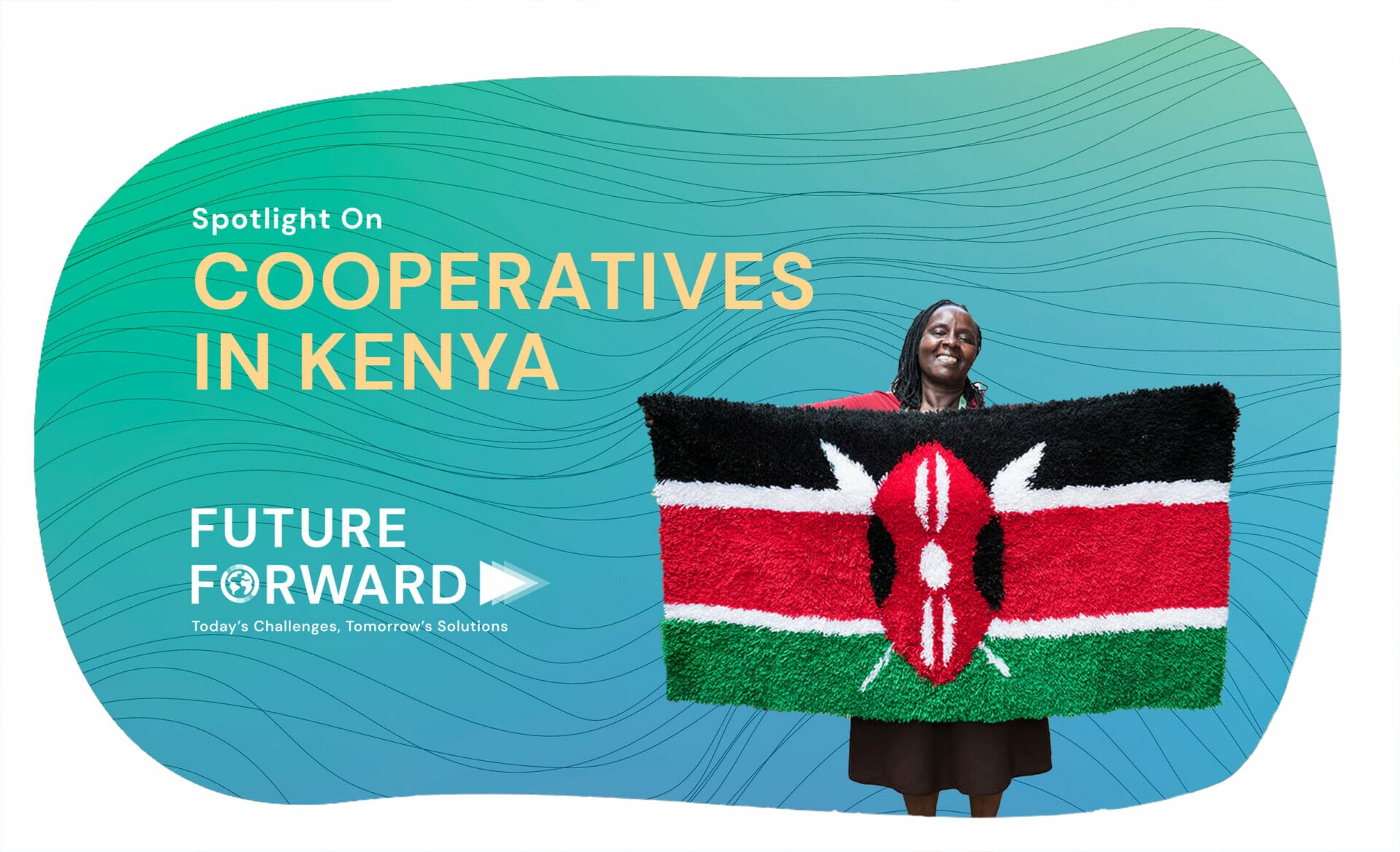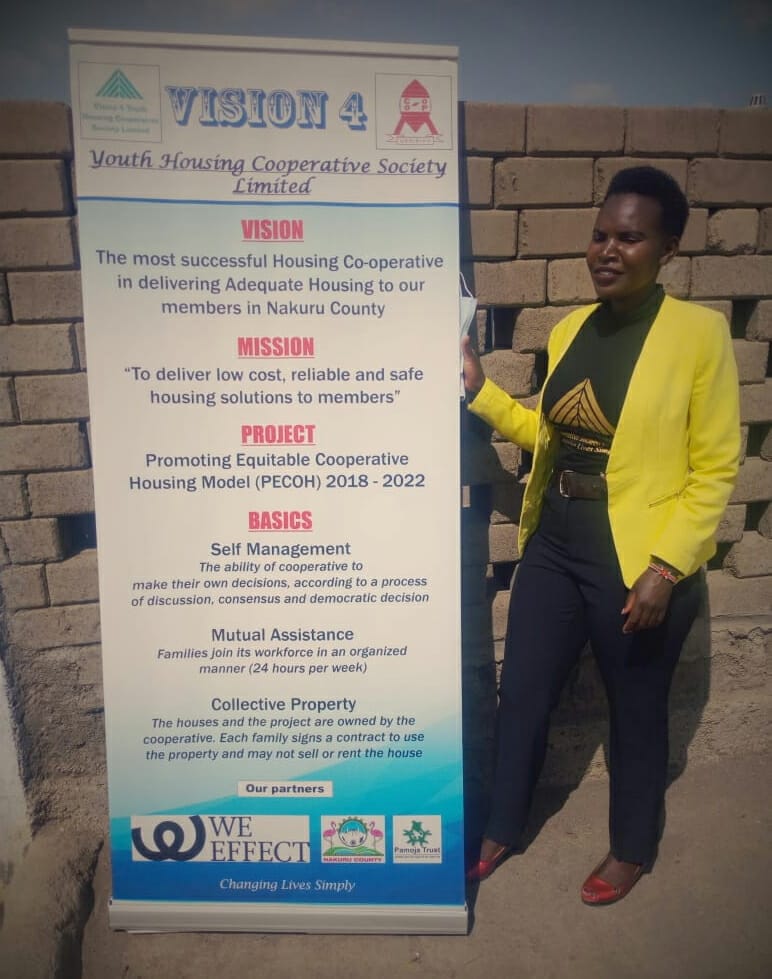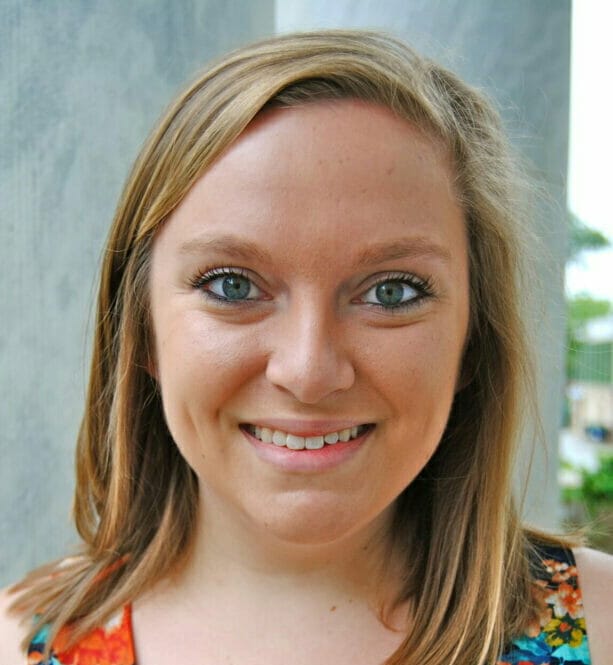News > Blog
Addressing Housing Challenges through Cooperatives
Published 05/06/2022 by Global Communities

By Ashley Holst
One of the global victims of rising inequality and climate change is access to decent housing. Housing costs are increasing, while the supply is waning. In many countries, including Kenya, where the USAID Cooperative Development Program – Cooperative Leadership Engagement Advocacy and Research (CLEAR), is being implemented by Global Communities, land affordability and title challenges, extremely high interest rates, mass migration to big cities and poor infrastructure are also major barriers to home ownership.
These challenges drive many people to rent at high rates or to build homes and communities in informal settlements. Unfortunately, in Nairobi, these settlements rarely have access to water and electricity and are in constant danger of being demolished by the government. We also know that housing insecurity is directly linked to negative outcomes such as poor health, unemployment and lack of access to quality education, among others.
There are many possible solutions to addressing housing challenges globally, one of which Global Communities built the foundation of our work on: housing cooperatives. Housing cooperatives provide lower-cost housing, which shares costs and risks across members. In Kenya, housing cooperatives are a solution that also provides opportunities for members to slowly save and collectively purchase a large plot, which is cheaper and easier to procure than small lots and bulk purchase construction materials.
“Housing cooperatives provide more than just a roof over your head. They create community, allow members to have a say in the management of their home and, perhaps most importantly, provide members and their families a more physically and financially secure future.”
As a housing cooperative member myself, I know firsthand that having a democratic say in the management and policies creates a strong community and a shared interest in ensuring it is a safe and healthy place for all members. Residents are less at risk of predatory rental management and high-interest loans. Housing cooperatives, both in Washington, D.C., and Kenya, can also provide income-generating opportunities such as a cooperative store, rental units, or solar panels, which help to offset costs for everyone.
Global Communities was formerly the Cooperative Housing Foundation (CHF) International and built much of its early international development notoriety working to strengthen housing cooperatives in Central America and Eastern Europe. In the early 90s, CHF helped to establish nearly 4,000 homes at 32 different sites in Poland – many of which are still thriving today. This program was particularly inspirational as it helped provide lower-cost housing to over 15,000 people as Poland transitioned to a democratic country. Prior to this, there was a lack of homes available and many of the families would not have been able to afford a home through a traditional ownership model. Since then, Global Communities has strengthened housing cooperatives around the world, including in the Philippines, South Africa, and now Kenya, to help more people afford safe homes and build strong cooperative communities.

Over the last five years, Global Communities has re-engaged in the housing cooperative sector through the Cooperative Leadership, Engagement, Advocacy and Research (CLEAR) program funded by the U.S. Agency for International Development. The CLEAR program supports housing cooperatives by coaching them through the development of business plans, implementation of strong financial practices and training on membership and governance.
Technical support from Global Communities helps ensure that the cooperatives can provide for their members and have sustainable solutions for long-term operational success.
Today, Global Communities is working with housing cooperatives in Kenya through the USAID Cooperative Development Program – CLEAR, which started in 2018. CLEAR is funded by the U.S. Agency for International Development’s Cooperative Development Program. Of CLEAR’s cohort, a few housing cooperatives are more established and provide stable housing for their members as well as steady income through renters and other small income-generating businesses. Two additional housing cooperatives formed in 2016 and 2019 and are in the process of member saving, purchasing plots and building units. Both are made up of members who currently live in informal settlements in Nairobi. These housing cooperatives are truly working to secure strong futures by helping individuals who are living with housing insecurity have a safe and reliable home. Moving to the housing cooperative will undoubtedly improve their household livelihood by providing reliable utilities and secure ownership of title, meaning they will never again be forcibly removed from their homes.
The CLEAR program supports these housing cooperatives by coaching them through the development of business plans, implementation of strong financial practices and training on membership and governance. Technical support from Global Communities helps ensure that the cooperatives can provide for their members and have sustainable solutions for long-term operational success. CLEAR does not provide financial support or direct involvement in procuring land or construction. Instead, the program helps empower members to use the cooperative model to provide for their futures collectively.
Housing cooperatives strengthen household livelihoods by creating more affordable housing, protecting property rights and providing security of tenure. Members, and often the wider community, also benefit from collective access to basic services like water and sanitation, which are important to health and livelihoods. Such utilities are often procured by the cooperative at a cheaper rate than individual owners. In some cases, housing cooperatives are providing members an opportunity to own land where they can live and grow their own food, something that would be impossible in rental units located in urban centers. Our Kenyan Housing Cooperative partners are also collectively purchasing building materials and construction services, leading to a more economical and environmentally-friendly construction process. The housing cooperative may also provide some financial services, including small loan interest loans.
While still a new and developing concept, I believe many of the cooperative benefits have further positive impacts on the climate such as bulk purchase of materials, prioritizing health and sanitation, and creating greenspace. Many housing cooperatives, including my own in Washington, D.C., are also taking action to prioritize the climate by incorporating solar panels or composting into their operations. We hope to see similar expansion in our partner cooperatives around the world.
Housing cooperatives provide more than just a roof over your head. They create community, allow members to have a say in the management of their home and, perhaps most importantly, provide members and their families a more physically and financially secure future. Over the last five years, Global Communities has re-engaged in the housing cooperative sector through the CLEAR program. While a nod to our long history, it is also a recognition of the opportunities for the cooperative model beyond agriculture to improve livelihoods, provide decent work (and homes), and support sustainable, locally-led development. As we move into the final year of CLEAR, we hope to support the Kenyan housing cooperatives to graduate into fully-fledged operations.

Ashley Holst is a Senior Technical Specialist of Cooperatives and Inclusive Businesses at Global Communities and supports the Cooperative Leadership, Engagement, Advocacy and Research (CLEAR) program in Kenya, along with supporting the overall cooperative technical area. She earned a master’s degree in International Development, specializing in Monitoring & Evaluation from American University in Washington, D.C., and an undergraduate degree in Sociology and International Political Science from Drury University in Springfield, Missouri.
This content is part of Future Forward, a thought leadership and storytelling series on how Global Communities is driving change to save lives, advance equity and secure strong futures. To learn more, visit globalcommunities.org/futureforward.





